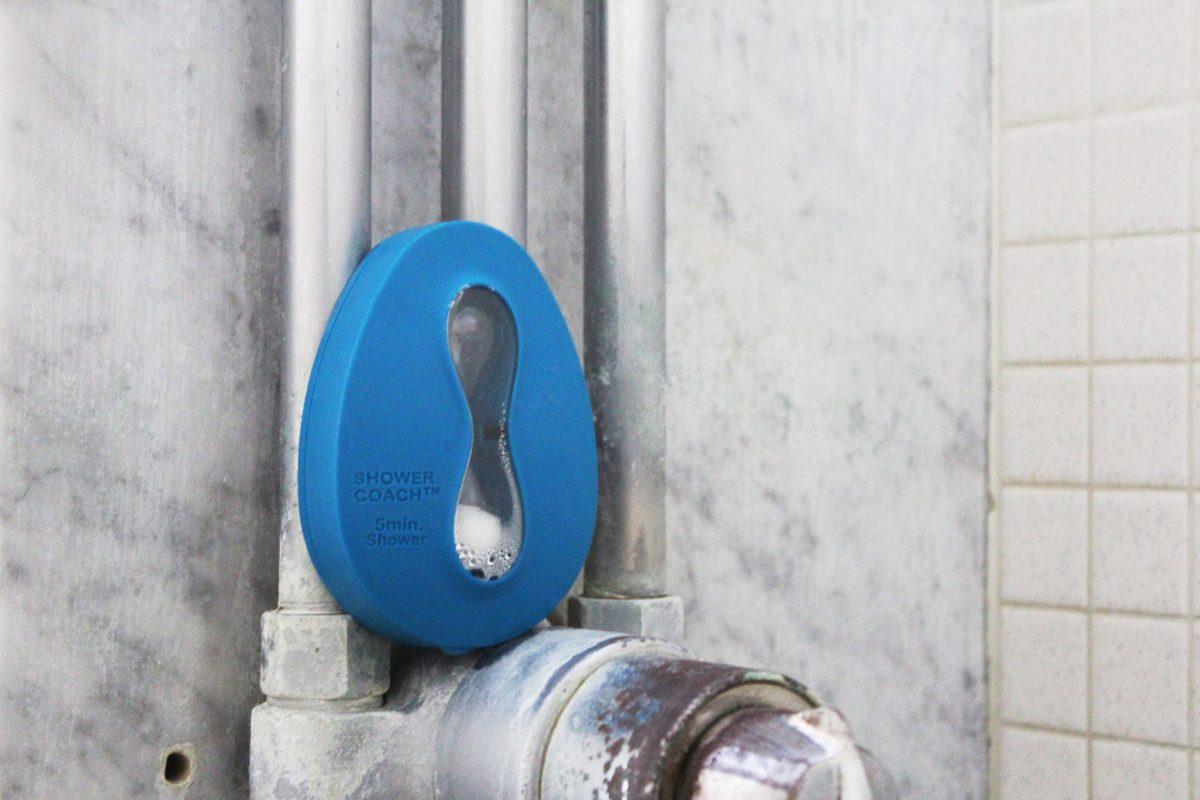Tower residents returned to their dorms to find small hourglass timers attached to the walls of their showers. Installed by Amal Cheema ’17 and Jabree Ellis ’17, the shower timers are part of the effort to reduce water and energy usage on campus. Cheema and Ellis spent hours installing them in the hopes of substantially reducing Wellesley’s water waste.
Cheema, a residential assistant in Claflin, first saw the shower timers during a visit to Tufts University and was inspired to try a similar method at Wellesley. After discussing the idea with Ellis, the two then worked with Sharon Bort of the Office of Sustainability to contact the Class of ’57 Green Fund. The organization provides funds for projects, such as shower timer installation, to promote awareness of the college’s impact on the environment.
“The fact that Jabree and I are neither involved with an environmental organization goes to show how easy it is to make a sustainable change that you can come up with an idea and that you can apply to the amazing alumni fund and get the support from people who graduated from Wellesley but still want it to become a better microcosm of a world,” Cheema said.
The students researched the potential benefits of their idea and produced a 10 page outline to apply for the funding. Their research drew upon data from other colleges and universities such as Tufts University, Boston University, and Oberlin College, who have already proven that this tactic was effective in reducing their environmental impact.
Each hourglass timer, encased in a holder in order to place it in the shower, costs $2.19.
“If everyone cuts down their shower by like two minutes, within a day if people use the shower timers as we expect them to use them, the timers pay for themselves… I think that in regards to different implementations of saving water this is by far probably the cheapest means of saving water,” Ellis said.
Tower Complex will be the test site for the project and the only residential complex with the timers for the semester. The two students can monitor the project through information from surveys and student opinions, which they will then present to the board of the Green Fund. While there is no exact way to measure how much energy and water is saved, a survey can show how well the project is progressing. The survey, which will be sent to students in the Tower complex during the semester, will include questions such as whether students are actually using the shower timers and how much students’ average shower time has decreased since the installation of the timers. The students’ responses will also be used to look for any problems with the shower timers.
Both Cheema and Ellis do not foresee any major complaints that could stop them from continuing the project after this semester.
“For some people it might infringe on their ‘shower sovereignty’ but I think for the environment it’s worth it,” Cheema said.
Student responses in Severance are already showing that the shower timers are effective. “I think it’ll make people more aware… I haven’t gotten down to five [minutes] but I’ve definitely been thinking about it,” Catharine Hemp ’18 said.
“Over the course of the last three showers I have always tried to decrease the time… It’s kind of fun to know how fast of a shower you take and also to know that you’re saving water,” Maya Muldowney ’18 added.
If this pilot program proves to be successful in just the Tower Complex, Cheema and Ellis have long term goals for the project including installing shower timers throughout all residential halls. They hope that others will continue to support the project after they graduate.
Photo by Soojin Jeong ’17, Photography Editor






